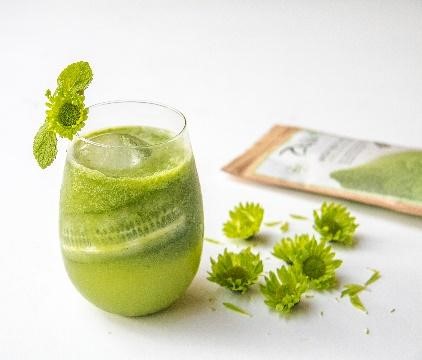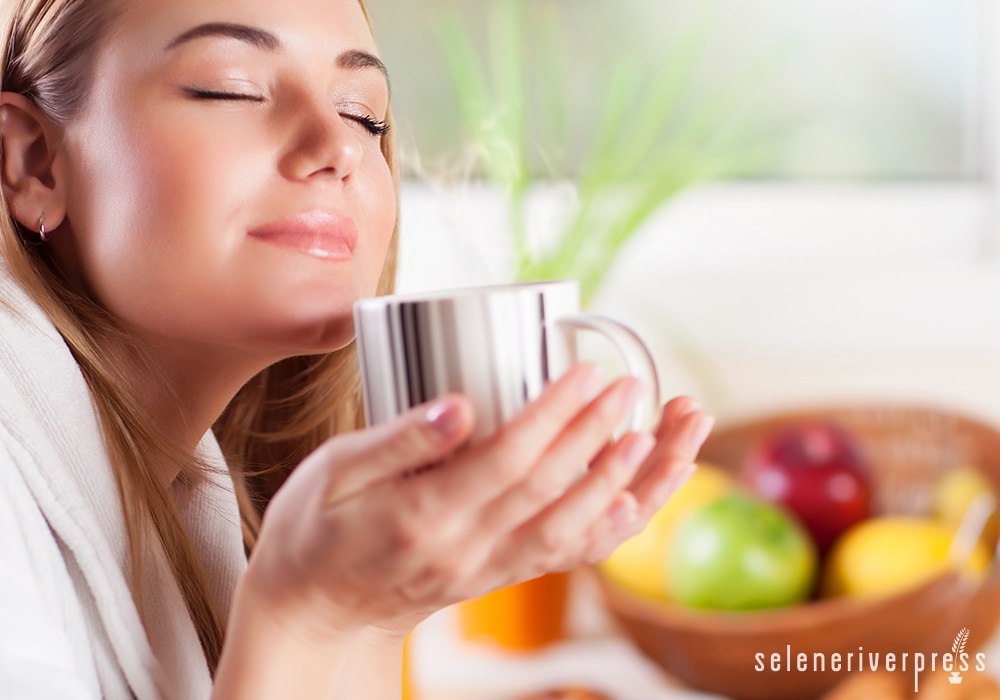Do you schedule your day around your access to coffee? Does your energy crash after your caffeine hit, making you desperate for an afternoon nap? Well, we have five healthy, energy-boosting alternatives that will keep you moving. But first let’s discuss why you might want to make changes to your coffee habit.
How Much Is Too Much Coffee?
Health experts recommend no more than 400 mg of caffeine per day, which is roughly equivalent to 3–4 cups of coffee. Flooding your body with more than this can lead to unwanted health effects. If you think you’re drinking more caffeine than you should, here are some red flags to look out for:
Weight gain: A good cup of coffee may seem comforting, but caffeine is known to increase the stress hormone cortisol, which has been proven to lead to weight gain.
Energy loss: It’s no secret that caffeine boosts your adrenal system and energy level, but this can result in a major slump afterwards.
Mineral deficiency: Caffeine reduces your body’s ability to absorb iron and reduces your stores of calcium, zinc, magnesium, and other essential minerals.
Poor sleep: An after-dinner coffee can lead to a restless night. Caffeine stays in the body anywhere from 4–6 hours and gets in the way of proper sleep.
If you want to keep your coffee fix in check but still get your morning boost, check out some of the healthy, energizing alternatives below.
#1. Matcha Green Tea
Made from the finely ground powder of the whole green tea leaf, which preserves the goodness of the plant, matcha tea has been embraced by people all over the world as an alternative to coffee.
A 2-gram serving of matcha contains much less caffeine than coffee, but due to its amino acid content, it takes your body around 6–8 hours to absorb it. So when you start your day with matcha, you’ll feel the perks throughout the day.
Matcha also offers health benefits. It boosts immunity, promotes weight loss, and contains cancer-fighting properties. It has the highest natural concentration of the amino acid L-theanine, which promotes concentration and memory.
To drink matcha, simply dissolve 2 teaspoons of matcha powder in a cup of hot water, stir, and enjoy!
#2. Water
Ever dealt with a debilitating bout of fatigue? It could be that you were dehydrated. While being fatigued seems like it should guarantee a good night’s sleep, the primary symptom, dehydration, interrupts sleep patterns, so it can cause restless nights instead.
Many of us make the common mistake of drinking water only when we’re thirsty—but thirst is one of the last symptoms you feel when you’re dehydrated.
When dehydrated, your body simply becomes weaker. A study on athletes found that dehydration was directly linked to low performance. Staying hydrated gives you energy and helps you be more productive throughout the day.
The recommendation is to drink two liters of water daily. If you like, you can make water more interesting by adding some fresh mint, root ginger, and cucumber—or use whatever chopped herbs, spices, or low-sugar fruit you prefer.
#3. Green Juices
Drink your greens! We all know vegetables are good for the body, but greens contain less sugar and fewer calories. And if they’re grown on healthy soil, they also contain more vitamins and minerals. For example, spinach is a great source of iron, which helps keep anemia away. And kale is high in potassium, which can help reduce blood pressure and prevent heart disease.
Drinking a serving of green juice every day is not only refreshing, but it can also improve heart health. One study revealed that 300 ml of green juice per day for 6 weeks lowered LDL cholesterol by an incredible 9 percent.
Try whizzing up a handful each of kale, spinach, cucumber, and celery with a couple slices each of fresh ginger and green apple. Voila, you have a delicious cup of juice! You can make it even healthier by adding a supplement, such as spirulina, barley greens, or matcha powder.
#4. Yerba Mate
If you’ve ever visited South America, you know how much the locals prize this herbal drink. Made from the leaves of the Yerba mate (pronounced mah-teh) plant, it’s similar to green tea. Mate is sourced and prepared the same way and has a similar taste.
To drink mate, you steep the leaves in hot (not boiling) water. It’s traditionally served in a hollow wooden bowl with a metal straw.
With about three quarters less caffeine than coffee, mate is similar to matcha green tea, and it’s also packed with health-boosting amino acids. But the main reason South Americans love mate is for its kicking natural high! So don’t drink it directly before bed.
#5. Protein Smoothie
Gym lovers know that protein is premium fuel for the body, and research shows that a diet balanced with good protein increases alertness and concentration thanks to its ability to flip the brain into producing the chemical orexin.
To sustain energy throughout the day, try introducing a little protein into your daily smoothie. You can find plenty of plant-based, protein-packed superfoods to add to smoothies, including silken tofu, nut butter, and mushrooms. Yes, mushrooms! They’re very high in protein and the vitamin C complex. You can also add hemp hearts, chia seeds, ground flax seeds, and whole oats for a thicker consistency.
Try mixing the following ingredients in a blender: ¾ cup almond milk, 2 tablespoons almond butter, ¼ cup raw cashews (soaked overnight in water), 1 banana (frozen chunks), 2 tablespoons whole oats, and a pinch of cinnamon.
In Summary
You might be wondering if you should stop drinking coffee altogether. For most people, this isn’t necessary. But you can drink coffee in moderation simply by switching out a cup or so per day for one of these alternatives.
Healthier options to coffee can improve your diet and introduce your body to nutritional benefits that you may be lacking. Superfoods such as matcha green tea powder, plenty of water, and a substantial protein intake can all help raise and balance your energy levels and offer many other natural health benefits.
Images from iStock/Anna_Om (main), @teatini_ (smoothie).


